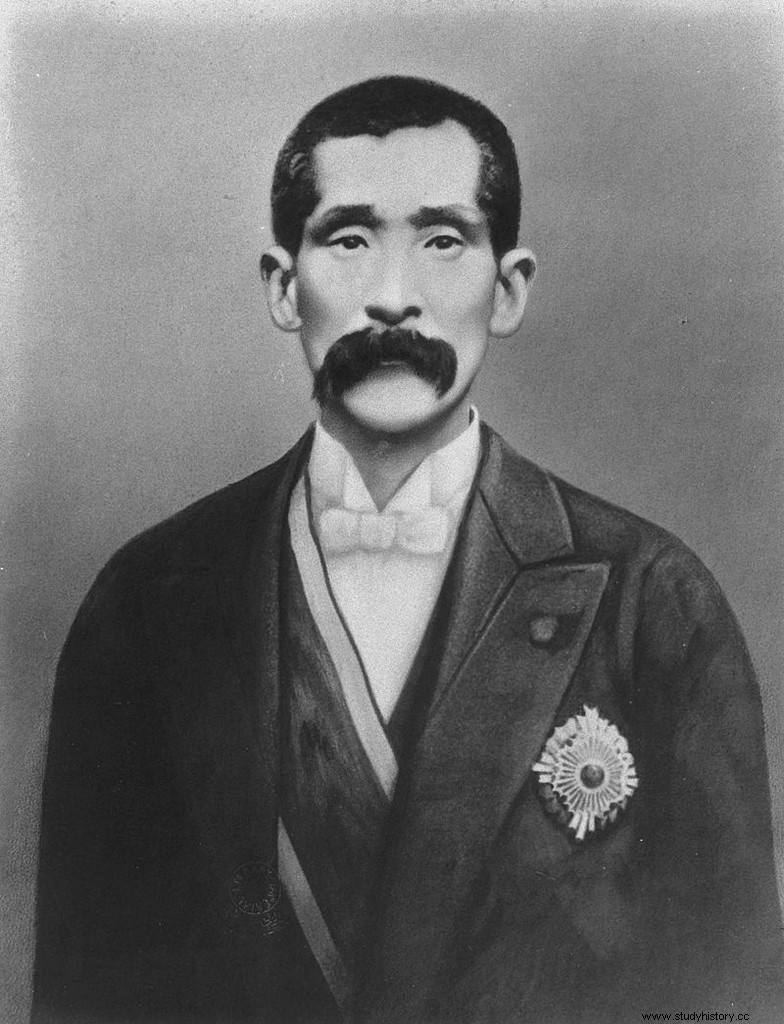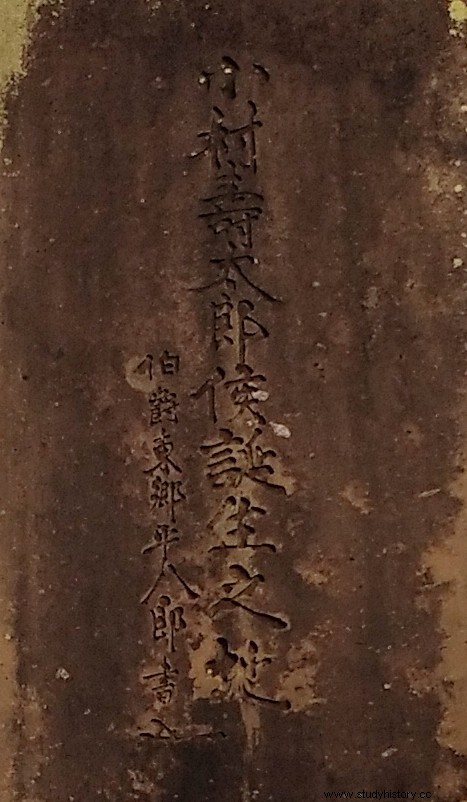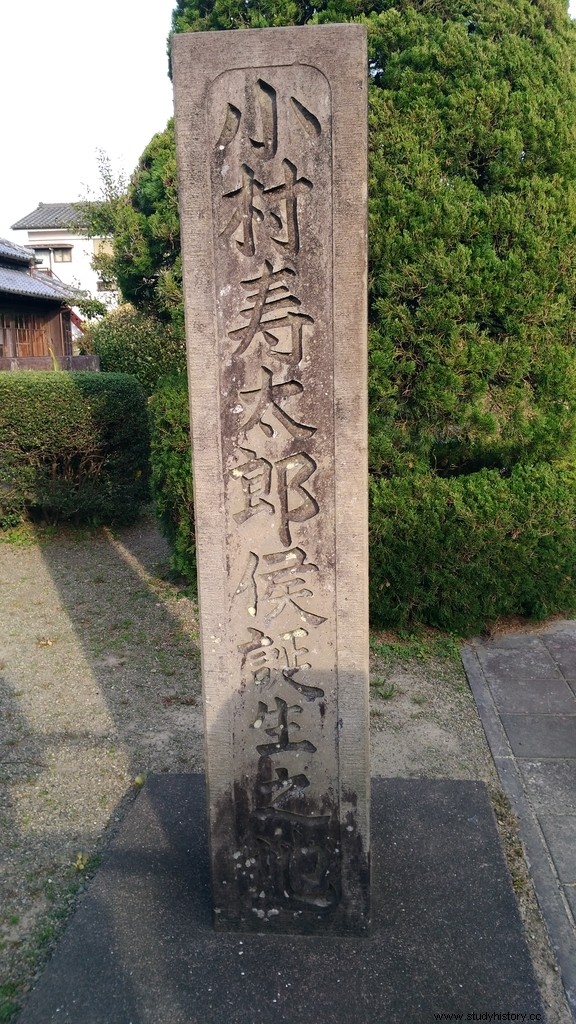
Komura Jutaro? Oh, you're the one who revised the treaty, right?
I think that even if you hear the name Komura Jutaro, you will get a reaction like this. I was not so familiar with Japanese history, but I had the same impression.
However, this time I went to the "Komura Jutaro Memorial Hall" in Obi City, Miyazaki Prefecture, and my impression changed considerably, so I would like to write an article.
Komura Jutaro's terrific career
Let's briefly summarize Komura Jutaro's career.
1855:Born in the Obi domain (children of samurai).
1870:Entered University Nanko (predecessor of the University of Tokyo)
18 ?? Years:Studying Law at Harvard University
The Komura Jutaro Memorial Hall has a history of Komura Jutaro, but I was surprised to see it. There was a person who studied abroad at Harvard University at this time.
In recent years, students who do not go even if they enter the University of Tokyo have become a hot topic in the examination world. It is said that the phenomenon that top-class graduates such as Kaisei and Nada go to Harvard and Stanford has increased in recent years. Whether it's baseball, soccer, or a researcher, musicians are now out of Japan. There is no future in a nation where excellent human resources flow out ...
Let's leave the story for a moment. Even now, it is rare for people to go to Harvard University. It's not a rare level, and it's rare. I have lived in a foreign country since I was a child, and regardless of the environment, if I was not good at Komura Jutaro's time, I would enter Harvard University when I didn't even have a dictionary.
Every person in history is far away. That's why they get the illusion that they are characters in comics, but they are decent human beings.
Komura Jutaro enrolled in a clan school called Shintokudo at the age of 11 and studied English at the Chienkan in Nagasaki in 1870. In the same year, he was recommended by the clan to enroll in the predecessor of the University of Tokyo, University Nanko.
It seems that the students who received the recommendation of the clan are called "Koushinsei", but not all of them have good grades. Kazuo Hatoyama, the ancestor of the Hatoyama clan, was one of the people who became a tribute student at the same time as Jutaro, but it seems that only Komura Jutaro went to Harvard. From this, we can see how wise Komura Jutaro was.

However, Komura is amazing from here.
Upon returning to Japan, he became a judge of what is now called the Supreme Court after joining the Ministry of Justice, and in 1884 he was transferred to the Ministry of Foreign Affairs. He's a Supreme Court judge in his twenties, so it's terrible, albeit in a different era. When I was a student, I think the average passing age of the bar examination was about 29 to 30 years old, but at that time Komura Jutaro was a judge of the Supreme Court.
The Ministry of Foreign Affairs seems to have liked Mutsu Munemitsu, and was appointed as the deputy minister of the Qing dynasty in 1893.
As you know, he was in a very important position because of the Sino-Japanese War in 1894, and he has been the Under Secretary of Foreign Affairs since then.
The vice minister at that time was also in a position equivalent to the modern administrative vice minister, and he was the head of the ministry, and Komura Jutaro was appointed to that position in his thirties.
The most difficult thing in modern Japan is the University of Tokyo, but even the students of the University of Tokyo have difficulty in the national general employment (which was called type 1 at my time) exam, and those who passed the exam became administrative vice-ministers. The goal is to go down to the sky, and the vice-minister is the ultimate goal of the top folks who have gathered only the top folks for studying.
I wonder why Komura Jutaro was tired when he tried to write how amazing it was. I don't have a dream. What is it?
Aside from that, in 1901 he was appointed Minister of Foreign Affairs of the Katsura Cabinet, and in 1902 he formed an Anglo-Japanese Alliance.
This is a major event in world history, and at that time there were few equal treaties with the Orient in European countries. From the point of view of European countries, Asian countries were only colonies, and in fact they were not regarded as the same "people".
In particular, the British Empire at that time was the strongest nation boasting the world's largest version, and was not originally a country that formed an equal alliance with Japan.
In the background was the British speculation that the Romanov dynasty wanted to stop Russia's southward policy, but at that time it was Komura Jutaro himself who was actively insisting on an alliance with Britain in Japan. It's amazing because it's gone.
For better or for worse, Japan participated in the First World War in the wake of the Anglo-Japanese Alliance, and it was Komura Jutaro who had a great influence not only on the history of Japan but also on the history of the world. Would be good.
In the Treaty of Portsmouth, a peace treaty for the Russo-Japanese War that occurred in 1904, Komura signed as Japan's plenipotentiary ambassador.
Whatever you say, it seems strange that Komura Jutaro, who is from a small town called Obi, has been given full authority over Japan.

I actually went to Obi the other day, which is difficult to say, but it was in the countryside. After all, one train comes or does not come every hour. How did you get to Tokyo from such a place? Did you walk because there was no railroad in the Meiji era? And did you fly to the world from there? From this land?
I used to teach a lot at a cram school in Tokyo. They study in cram school for hours a day since they were in elementary school, and after class they study in the study room and go home. Seeing that, I thought that the environment in Tokyo was totally different.
Komura Jutaro did not grow up in such an environment.
Of course there would have been luck and timing. It was good that there was a system called tribute student by chance, and I put it in a private school. At that time, people who couldn't read and write were overwhelming, and the environment may have been better.
In 1908, Komura Jutaro accomplishes a historic achievement. He is an amendment to the unequal treaty.
"Restoration of tariff autonomy"
This is the moment when Japan was recognized by the world as an independent nation.
Komura Jutaro is a great Japanese man who represents the Meiji era.
